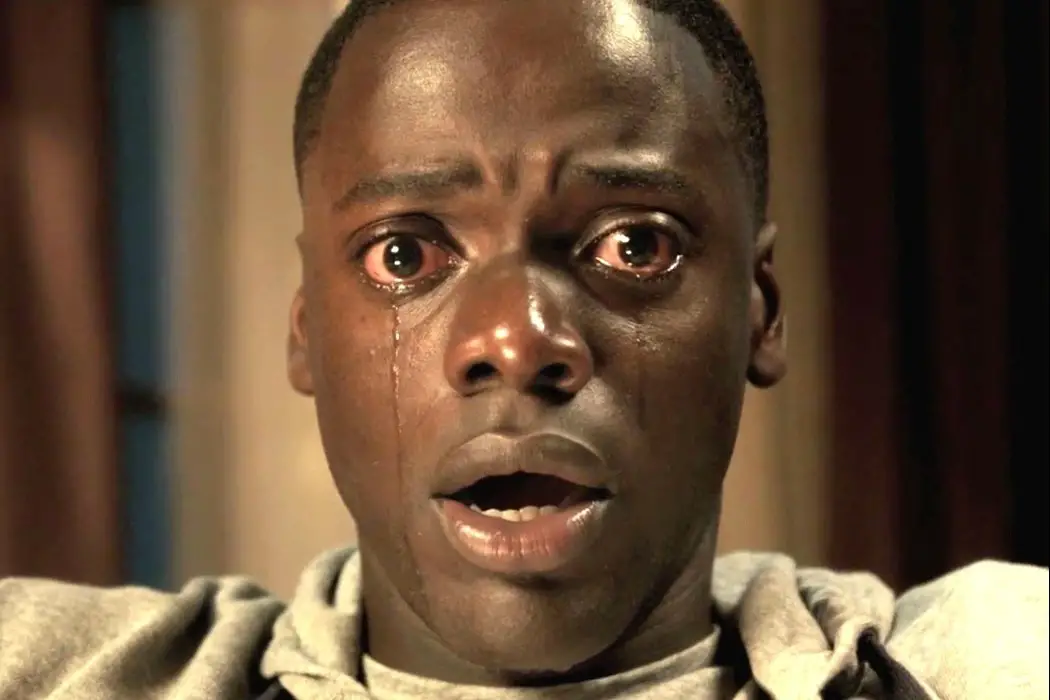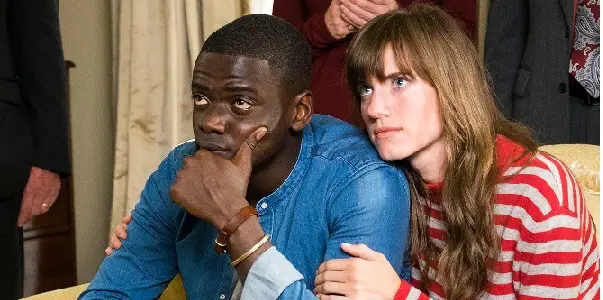Films That Transcend Genre, Or On the Politics Of Convention

Hazem Fahmy is a poet and critic from Cairo. He…
It is, sadly, common for excellent films that challenge our expectations of established convention to be described as “transcending genre”. While this is usually meant as a compliment for the film itself, it’s always a peculiar insult to the genre in question; a nonsensical statement that grossly underestimates the power and potential of convention.
We see this notion perhaps most commonly with the holy trinity of genres dismissed by mainstream culture: horror, action and superhero. Recent films like James Mangold’s Logan and the Russo Brothers’ The Winter Soldier often receive this label, for example. However, what is, perhaps, most absurd about this characterization of them, and any genre for that matter, is the bizarre assumption that works of genre are somehow so trivial that they are apolitical.
Vision & Canon
As a category that depends on both the perpetuation and subversion of established convention, genre is fundamentally very political. Through understanding the appeal, language and mythos of any given genre, especially in retrospect, we can understand the aesthetic and cultural forces in which it was operating.
An auteurist take may help expand our expectations of a genre, but that doesn’t diminish the thematic significance of their less artsy predecessors. Sci-fi films like Kubrick’s Solaris may have consciously pushed the genre further along in its thematic potential, but that doesn’t mean that humanity’s fascination with the power and potential of technology wasn’t always an integral element of science fiction.

We should, of course, celebrate works that do manage to open up the possibility of what we’ve come to know of their genres, whether aesthetically or politically. An obvious example of this would be this year’s successful Get Out, a film whose brilliance lies in its infusion of classic horror and social thriller tropes with the current American zeitgeist around anti-black violence. The boldness of Jordan Peele’s vision is unquestionable, but it is not without its influences.
In an interview with The Village Voice, Peele states: “The ‘social thriller’ is a genre I’m particularly obsessed with. To me, it’s about the notion that to find the scariest monster we need look no further than the human demon. And when I talk about the human demon, I’m talking about the evil we’re capable of collectively.”
While Get Out’s uniquely explicit, and immensely effective, employment of the political is nothing short of praiseworthy, it is firmly rooted in the genre of the social thriller itself as well the conventions of horror. Acknowledging that doesn’t take away from the inventiveness of the film. The mastery and subversion of convention is no easy feat.
While I firmly believe that Get Out fully deserves the critical praise and cultural respect it has so far received, I find it has also overshadowed other works of the decade that similarly used the conventions of their genre for a scathing political effect. A prime example would be Robert Rodriguez’s 2010 Machete, a criminally underappreciated film whose political overtones have only grown more relevant today.
Like much of Rodriguez’s filmography, Machete is an over the top action film that borrows heavily from the hyper-stylized conventions of 80’s action. Though widely celebrated for its embodiment of B-movie and grindhouse aesthetics, the film was also commonly dismissed as “shallow” and “tasteless”, two key features we associate with the exact kind of action flick Rodriguez was paying homage to. And yet, I find that Machete’s mastery of exploitation film techniques only serves its political commentary.
Machete Don’t Text Apolitically
The film’s screen time may be dominated by Danny Trejo’s seemingly immortal Machete, but the driving force of the plot is fundamentally rooted in a (literally) political conflict: the xenophobic campaign of Robert De Niro’s Trumpian John McLaughlin. Rodriguez portrays the senator as a violent, crass, hypocritical, and treacherous man, but he does so through the consciously ironic use of B-movie narrative techniques, especially convoluted twists.
The virulently anti-Mexican senator turns out to have cartel money in his campaign. In public, he speaks with a thick ‘Texan’ accent and sports a large cowboy hat, but in private he sounds like a New Yorker. The first time he appears on screen, he is hanging out with a white supremacist vigilante group that savagely murders a couple attempting to cross the border into Texas. The last time we see him, he meets an even more violent fate at the hands of the very same group as he, following a series of unfortunate events, attempts to escape Texas disguised as a Mexican laborer.

While these narrative and character elements are classic for the genres Machete borrows from, they are also uniquely used to comment on the borderline absurd corruption and violence of anti-immigration politics. In other words, this absurdity, which is integral to the genre, is used to shed light on the dark reality of xenophobia in contemporary America. The deliberately ham-fisted plot, which has antagonists revealing hidden motives-slash-loyalties every other scene, sheds light on the way nativist policies and the War on Drugs have only furthered the plights of Latinx folks suffering from cartel violence.
In one of the most ostensibly self-deprecating scenes of the film, Jessica Alba’s Agent Rivera, who spends the first two acts of the film as an ICE agent investigating undocumented immigration only to throw away her badge after losing faith in the law, gives an impassioned speech to a group of undocumented Mexican day-laborers about the injustice of abusive laws.
Her revolutionary spiel ends with the fierce proclamation: “we didn’t cross the border, the border crossed us!” While this line seemed somewhat humorous to many viewers of Machete back in 2010, it is presents one of the most powerful moments in Rodriguez’s oeuvre. In addition to reflecting the plain fact that much of the Western United States, including the majority of Texas, was taken from Mexico in the Mexican-American War, this line has actually been used by immigrant rights group in the US, and was even uttered by actress Eva Longoria at last year’s Democratic National Congress as a firm rejection of the violent “illegal alien” narrative.
In many ways, Machete is a film about a fantasy, a revolt of undocumented, exploited laborers led by an indestructible Mexican man wielding a tool of the working class. Rodriguez’s use of exploitation film convention only serves to heighten this sense of escapism, of distance from reality, and it is that distance that allows us to engage with the politics of the film in a fresh manner that we can’t do with an Oliver Stone or Michael Moore film. Though wildly different in their levels of explicitness, ultimately, do Machete and Get Out not do the same thing? Yet we dismiss the former because we associate its genre with mindless violence. Is there even such a thing as non-political violence?
Political Commentary In Blockbusters
The inherent political nature of genre is by no means exclusive to independent genre films made on a budget. Big studio films, even ones that may follow familiar narrative beats, still display a high propensity for political commentary. A recent example is this month’s terrific Spider-Man: Homecoming, a film that finally explores an issue that’s been nagging me about the MCU for the last decade: class.
Though the structure of the film follows much of the basic formula we’ve come to expect of superhero and coming-of-age films, it uses these conventions to emphasize an often overlooked side of Spider-Man that’s always been integral to his character. In fact, Peter’s whole arc in the film culminates in him accepting that he has to be a Friendly Neighborhood Spider-Man before he can be part of anything bigger.

To that end, the film makes several decisions that, in contrast to the previous iterations of the character by Sam Raimi and Marc Webb, provide a variety of examples as to how convention is inherently political. For starters, the Homecoming takes place almost entirely in Queens, decentralizing Manhattan as Spider-Man’s primary web-slinging grounds.
With the exception of Michael Keaton’s Vulture, not a single newly introduced supporting character of significant screen time is not a person of color. Even so, Vulture proves a triumphantly complex villain, one whose desire to get back at corporate giants like Tony Stark who’ve exploited his labor, is deeply understandable.
While the choice to focus on Queens (reflecting its ethnic diversity and commenting on its class struggles in the process) was a conscious one in Homecoming, it emphasizes the politics of representation and ideology that are inherent to any genre, even when said choices are unconsciously made. Save for Eddie Brock, every single villain in Raimi’s trilogy, from the Green Goblin to Sandman, starts his journey after a corporate scientific mishap. That series of choices may not have been intentional, but it nonetheless spoke volumes.
Conclusion
When a film defies our expectations, impacting us in ways we never thought it could, it’s nothing short of a magical experience. But that is a reason for us to reflect on those very expectations, not dismiss them. Convention and genre allow film language to thrive. Any film that excels enough at its play with genre as to earn a “transcends genre” badge is a film that has mastered the technique and imagery of its genre. It is only through the creation of convention that we can have the subversion of convention. Every second of that process is deeply political.
Have you ever seen a film that transcends its genre?
Does content like this matter to you?
Become a Member and support film journalism. Unlock access to all of Film Inquiry`s great articles. Join a community of like-minded readers who are passionate about cinema - get access to our private members Network, give back to independent filmmakers, and more.
Hazem Fahmy is a poet and critic from Cairo. He is an Honors graduate of Wesleyan University’s College of Letters where he studied literature, philosophy, history and film. His work has appeared, or is forthcoming in Apogee, HEArt, Mizna, and The Offing. In his spare time, Hazem writes about the Middle East and tries to come up with creative ways to mock Classicism. He makes videos occasionally.












